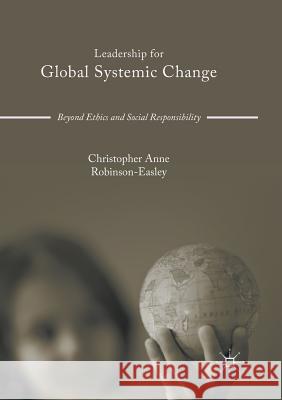Leadership for Global Systemic Change: Beyond Ethics and Social Responsibility » książka
topmenu
Leadership for Global Systemic Change: Beyond Ethics and Social Responsibility
ISBN-13: 9783319817804 / Angielski / Miękka / 2018 / 192 str.
Kategorie:
Kategorie BISAC:
Wydawca:
Palgrave MacMillan
Język:
Angielski
ISBN-13:
9783319817804
Rok wydania:
2018
Wydanie:
Softcover Repri
Ilość stron:
192
Waga:
0.25 kg
Wymiary:
21.01 x 14.81 x 1.12
Oprawa:
Miękka
Wolumenów:
01











